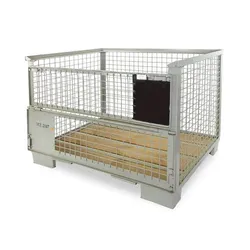How Can You Optimize Your Cargo Storage System?
2024-11-29
Optimizing cargo storage is essential for maintaining smooth operations and reducing costs. Here are some strategies to achieve this:
1. Assess Your Current System
Begin with an evaluation of your current storage layout and processes. Identify inefficiencies such as wasted space, frequent bottlenecks, or poor accessibility.
2. Choose the Right Storage Solutions
- Pallet Racks: Ideal for storing large quantities of goods in warehouses.
- Shelving Units: Suitable for smaller items and easy accessibility.
- Containers: Use stackable and labeled containers to organize goods.
Select a system based on the type, size, and turnover rate of your cargo.
3. Implement Technology
Use inventory management software, barcoding, or RFID systems to track and locate cargo efficiently. Automation in retrieval systems can further enhance speed and accuracy.
4. Prioritize Accessibility
Arrange items based on frequency of use. High-demand goods should be stored in easily accessible locations to minimize retrieval time.
5. Utilize Vertical Space
Invest in multi-tiered shelving or mezzanine systems to make the most of your vertical storage space. This approach is particularly useful in warehouses with high ceilings.
6. Train Your Workforce
Ensure employees are trained in storage protocols, safety measures, and handling techniques. A skilled workforce is key to maintaining an organized and efficient storage system.
7. Regularly Review and Update
Storage needs evolve over time. Periodic assessments and updates to your cargo storage system ensure it remains aligned with your operational goals and market demands.
By optimizing your cargo storage, you can improve efficiency, reduce costs, and create a more streamlined supply chain process.



